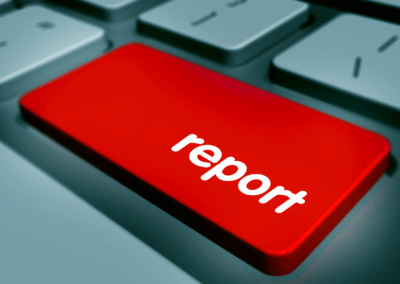The Impact of ESG Investing
JEWISHcolorado offers a Jewish philanthropic home. Now, donors can use a new offering—investments that are evaluated for Environmental, Social, and Governance (ESG) factors. Akasha Absher, President and Head of Impact Investing at Syntrinsic Investment Counsel, answered our questions about how Syntrinsic has helped JEWISHcolorado move forward on its impact investing journey—making better decisions for a better world.
What is ESG investing?
Environmental, Social, and Governance investments mean evaluating material ESG factors in the investment analysis to assess the risks and opportunities of the investment.
Can you give an example of ESG?
Let’s take the soft drink industry, as an example. All the companies are rated against each other by ESG data providers such as MSCI, Sustainalytics, Bloomberg, etc. These companies have created a rating system to measure the investment through the lens of ESG factors.
A soft drink company would be rated for specific Environmental factors that are material to that industry. Some of the material environmental factors are the carbon footprint of the company, the company’s water stress, and what kind of packaging materials are used and how much waste the packaging creates.
The company would also be evaluated for material Social factors with an eye on health and safety and product safety and quality. Are people who manufacture the product in safe working conditions? Is it safe for consumers to use the product? Are consumers buying a quality product?
Finally, a company would be rated for its Governance. Does the company have an independent board of outside directors who are not affiliated with the company and are not related by birth to one another? Is the board and leadership of the company diverse? Are people paid appropriate salaries, and is the company’s accounting solid?
Are all companies evaluated on the same ESG factors?
No, all companies are not evaluated on the same ESG factors. Each industry is evaluated on the ESG factors that are material to that industry. The Environmental and Social factors I outlined in the example of a soft drink are specific to a soft drink company. Industry to industry, the Environmental and Social factors vary. Governance factors are applicable to all industries.
What does this mean for the investor?
People can now invest in companies with an eye toward potentially mitigating environmental, social, and governance risks. They can see ratings for companies that range from AAA to CCC and make their investment decisions accordingly.
By some estimates, financial investments informed by Environmental, Social, and Governance data have grown to more than one-third of capital invested globally every year. Why are ESG investments increasing?
There are three reasons. First, ESG can potentially help mitigate some of the risk inherent in investing. From the perspective of environmental factors, if you believe we are transitioning to a low carbon economy, then you have a way to evaluate the carbon risk in your portfolio. In addition, there is the potential to reduce reputational risk in the portfolio from environmental issues, human rights controversies, governance issues, etc. This is important because if a company has extreme human rights or labor issues—severe controversies—your investment can be hurt.
The second reason for growth in ESG is that over the last 10 years, many investors—though not all—who have been integrating ESG have seen increased returns. When you reduce risk, you can increase the likelihood of improved performance.
Finally, ESG is growing because the investor has an opportunity for values alignment. Holding companies accountable to customers, stakeholders, and the environment is meaningful to many people. Investing in a way that reflects your values won’t necessarily solve all problems, but it is a first step along the way.
The Jewish Federations of North America (JFNA) has recently raised the issue of ESG ratings with the Securities and Exchange Commission (SEC). JFNA believes that ESG ratings are “frequently swayed by anti-Israel advice or biased processes, threatening to damage Israel economically.” JFNA is asking the SEC to consider this factor when preparing a new regulatory rule for ESG-focused strategies.
The issue in any rating is that there is the potential for subjective bias. That is true in traditional investing just as it is when integrating ESG. ESG ratings are not held to uniform standards. There really is no consistent way to assess geopolitical risk. So yes, ESG—like traditional investing—is not perfect. Yes, ESG can and, in some cases, has demonstrated bias, including bias toward Israel. One ESG ratings firm, Sustainalytics, is working on addressing anti-Israel bias in its Human Rights Radar, one analytic tool within their broader ESG framework.
That is one reason why Syntrinsic relies on many analytic tools and perspectives when conducting due diligence on ESG as well as traditional investments. Despite the potential for bias, ESG compels investors to consider critical factors that also have the promise of mitigating the risk of investment and making it more transparent and potentially more impactful.
Donors to JEWISHcolorado who have donor advised funds can now use ESG factors in their investments. Why would they want to do so?
A donor might wish to use ESG factors to mitigate risk within their portfolio. Or perhaps they want to invest with a values alignment lens and feel that companies with better Environmental, Social, or Governance scores than their peers better reflect the donor’s personal values. Either way, these motivations could then benefit stakeholders—employees, customers, and communities. ESG investing won’t solve all the problems, but it is taking the step of looking at other aspects of a company beyond the bottom line.
If you are interested in learning more about ESG investing at JEWISHcolorado, please contact foundation@jewishcolorado.org.






